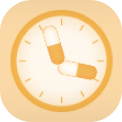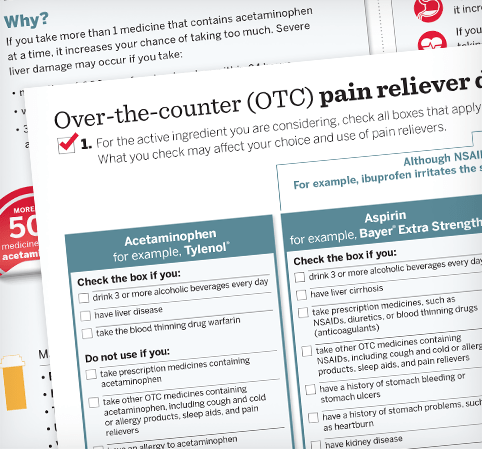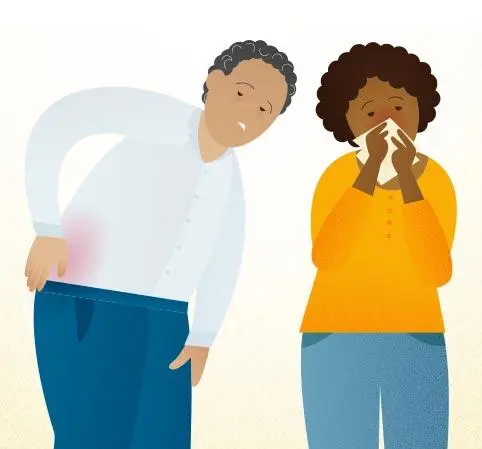Adult NSAID dosage chart
NSAIDs, or nonsteroidal anti-inflammatory drugs, are a common type of pain reliever. Over-the-counter (OTC) NSAIDs include ibuprofen , naproxen sodium ,and aspirin . They each have different dosages, directions, and daily limits. Download and save this chart for the correct OTC ibuprofen dosage, naproxen sodium dosage, and aspirin dosages to help ensure you are taking these pain relievers safely.
IBUPROFEN
for example Motrin® IB and Advil®
200 mg per pill
NAPROXEN SODIUM
for example Aleve®
220 mg per pill
ASPIRIN REGULAR STRENGTH
for example Bayer® Regular Strength
325 mg per pill
ASPIRIN EXTRA STRENGTH
for example Bayer® Extra Strength
500 mg per pill
With NSAIDs*, the risk of harmful side effects increases if you take more than directed or for longer than directed. All NSAIDs can cause side effects that harm your kidneys and stomach. Non-aspirin NSAIDs, such as ibuprofen or naproxen sodium, increase the risk for heart attack, heart failure, and stroke.

Take the smallest effective dose, and take it for the shortest amount of time needed. Why?
NSAIDs can cause stomach bleeding, reduced kidney function, and other side effects. The chance of harmful side effects increases the more you take or the longer you take them.

Take ONLY 1 medicine that contains an NSAID at a time. Why?
More than 900 OTC and prescription medicines (see examples) contain an NSAID. Taking more than one NSAID at a time or for longer than directed can increase your risk of stomach bleeding, heart attack, or stroke.

Maintain the benefit of your aspirin heart therapy. How?
If you take aspirin to help protect against heart attack or stroke, be aware that taking ibuprofen may decrease that heart health benefit.
Remember: It is important to always read and follow the label. If you have any questions or are unsure which pain reliever may be right for you, talk with your healthcare professional.
*NSAID = nonsteroidal anti-inflammatory drug

Compare OTC pain relievers
OTC pain reliever differences could matter to your health

Physical pain can feel overwhelming
Try non-medicine methods to get pain relief safely
